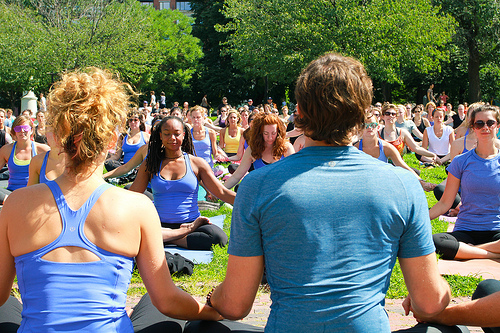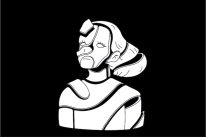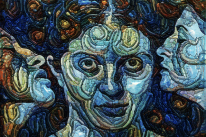
“Remember, we all stumble, every one of us. That’s why it’s a comfort to go hand in hand.” ~Emily Kimbrough
Even though it was 18 months ago, I still remember my climb up Kilimanjaro like it was yesterday.
Taking those final steps toward the summit with tears in my eyes because I never believed that I—someone who grew up this sick little kid who held a deep-seated belief that she’d never be “an athlete”—would do something that thousands each year, including world-class athletes, cannot.
Yet there I was.
But I certainly didn’t get there alone. I had help—a lot of it.
While training, I called on my friends who are athletes and coaches to ask their training and recovery advice.
For example, when I got ambitious on a hike and was so sore the next day I had to crawl up and down the stairs on my hands and knees, I called my Ironman Triathlete friend Shannon to ask him how to avoid having that happen again. (His answer was twofold: He first told me not to do that again, and then patiently walked me through the wild world of sport recovery drinks.)
As I continued preparations, I continued to turn to my friends, the climbing company, and seasoned climbing veterans for buying and renting gear, figuring out snacks on the trip, understanding the challenges of altitude sickness, and everything else that went into making Kilimanjaro a memorable and easy trip for me.
The phrase “it takes a village” certainly applied to me and this trip.
Then, when I got there, it was my turn to pay it back. I was climbing with some older gentlemen who were having difficulty navigating the rocks and tree roots. So, I’d patiently reach down and offer a hand—after all, we were there together, to accomplish this together. I wanted to both pay it forward and see them succeed.
On the summit day it was my turn to get help again.
At altitudes above 10,000 feet you feel the effects of altitude sickness, and on our summit day we were traveling between 15,000 and 19,340 feet—meaning at the summit I had half of the oxygen I would at sea level.
Hiking up a 45-degree scree-covered slope with half the air I normally had was making the final ascent a challenge, but I had a wonderfully patient guide who would listen to my breathing as I puffed along behind him; and he and the summit team would stop for me, let me catch my breath, and then patiently move forward only once I was ready.
Then all of the sudden there it was—the summit—both literal and metaphorical. I had put in months of physical training and a year of research and planning to make it happen, and finally it was a reality. But I never could have done it alone.
In the days and weeks after my summit I cried—a lot.
Accomplishing something that seemed so out of reach forced me to fundamentally change my beliefs about who I am. And to me, that is a huge part of the power of not going it alone: You become better than you ever believed possible.
The Power of Community
Here are 6 powerful reasons not to go it alone:
1. Collective wisdom. No one person ever has all of the answers, and regardless of the amount of Google-fu you may have, consulting with experts is always going to give you better information.
2. Pushing our limits. When working alone, it’s oftentimes too easy to give up when things get hard. By surrounding yourself with others working toward a similar goal or objective, you’ll get motivation, support, and friendly competition to push yourself just a bit further than you would have done on your own.
3. Support and belief. Some days those big goals just seem impossible. On those days when you most want to give up, you need to lean on your community the most. They believe in you—probably more than you belief in yourself.
4. New ideas. I truly believe that when you are working within a community of like-minded people that the wisdom of crowds is considerably greater than any one person working alone. Our divergent world views and lenses mean that we all approach the exact same problem slightly differently.
5. Borrowed motivation. Even on those days when your belief in yourself isn’t waning, doing what needs to get done can seem overwhelming. Look around your community and be inspired!
6. Accountability. If you’re an uber-responsible person, you may not want to admit to people you care about who are pulling for you that something didn’t get done. There’s nothing like having to be accountable to others to up your game.
Allowing others to help is hard, but it ultimately raises everyone’s game, and suddenly that summit isn’t nearly so far off.
Photo by lululemon athletica
About Jen Waak
Jen Waak is a health, wellness, and fitness coach who helps busy professionals have the bodies they want without having to give up their lives. The author of the Keyboard Athletes Guide to Pain Relief & Prevention, Jen lives & works in Seattle, WA. Sign up for her free Energy Booster Mini-Course at KeyboardAthletes.com.













 Though I run this site, it is not mine. It's ours. It's not about me. It's about us. Your stories and your wisdom are just as meaningful as mine.
Though I run this site, it is not mine. It's ours. It's not about me. It's about us. Your stories and your wisdom are just as meaningful as mine.
I agree with every single one. Although I’m an introvert by nature and find myself wanting alone time, I value community and appreciate all the advantages it has. Not just the offline community but the online ones are also particularly enriching.
Glori, I’m a huge introvert as well, but can’t imagine not having my in person and online communities to ground me, help me, and support me. They just make me better.
Accountability is a huge one for me. Seriously, there are things I would NEVER do if I didn’t have people holding me accountable. Going to the gym, getting my work done, and even getting up in the morning is easier when there’s someone waiting for me. Having a community to depend on is awesome. We shouldn’t have to do everything on our own, right? Thanks for the reminder that it’s always OK to ask for (and accept) help.
Sage, I hear you. I’m pretty motivated on my own, but community just makes things so much better. I know I push myself harder when I can see others doing the same (and cheering me on).
Congrats to you – that’s such an amazing accomplishment! I am in awe.
Good Post.
Disagree completely! Humans living together in communities is just not working. We all hate each other. Blacks vs whites, men vs women, etc etc we as a species kill one another the most. We are not meant to live in communities, rather alone and far from one another.
Where do those whom nobody cares about fit in this? Some people are forced to go it alone their whole lives, simply because no one is interested in their success or failure.
I speak from experience; I’ve had no real help or support (or love, tbh) at any point in my adolescent or adult life, and I’m still struggling to get anywhere. i’ll be 40 this year, and i have no career / family / love life / social life, because i do t believe in myself. Honestly, why should i at this point?
i know I’m fishing, but this is honestly the only place i can get supportive words.
I hope this message find you in peace 🕊️, I understand your emotions. I understand your hurt id like to encourage you to NOT give up. First wright down your strength, desires and hopes. Just look at the words and allow your mind to wonder now write you new ideas.